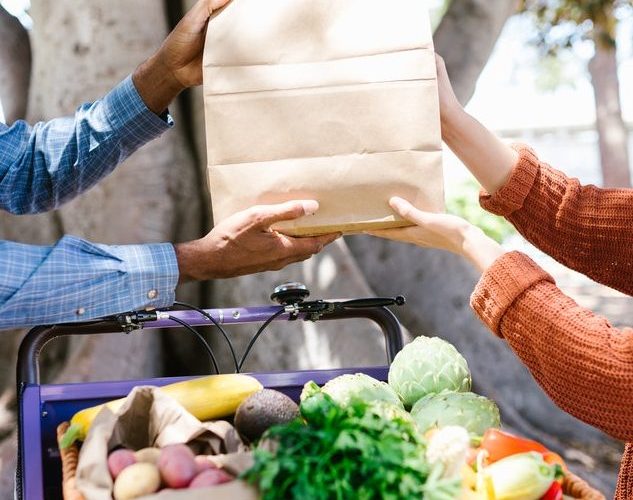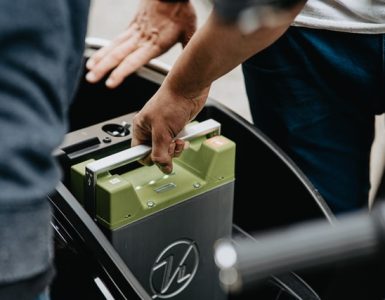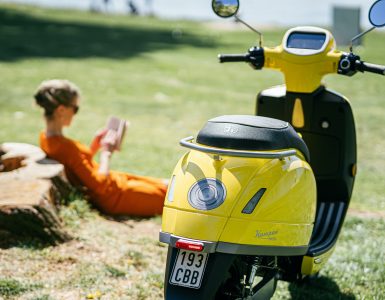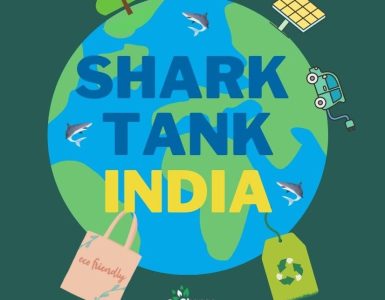At the times, when you can get groceries delivered in 10-15 minutes in India, I must confess that I prefer a company that does them in 4 to 6 hours. The reason is that my delivery agent comes in an Electric scooter, brings delicate fruits in a cardboard box, which I can return, and hands me a carry bag that has my vegetables. After emptying the loose vegetables, the carry bag is taken back by the delivery agent. Though it takes a few seconds to pick loose vegetables from a bag, it is worth the effort.
India’s retail space is in a fast lane, especially in the e-commerce sector. Every month some news from the sector creates a buzz. With many players jostling for consumer attention and wallet share, Big Basket is one of the oldest players in the segment that has created its own niche and is currently doing far more for the environment than others in the sector.
We will not discuss the dynamics and economics of grocery delivery, let us focus on the Big Basket sustainability aspects and the steps this TATA-owned company has taken for the environment.
Electric vehicles
Big Basket has been a pioneer in adopting electric vehicles for grocery deliveries and logistics. In 2021, Big Basket had about 800 Electric two-wheelers for last-mile delivery and had plans to add 4,000-5,000 EVs in the next two years. The company has also partnered with other logistics companies for electric three-wheelers, this includes Delhi-based Euler Motors, Bengaluru-based Howdyy, and Hyderabad-based ETO Motors, among others.
The foray into electric vehicles is not only preventing carbon emissions, which would have been in the case of fuel-powered vehicles, but it is also saving the costs of deliveries. The company has established charging points at its warehouse facilities, so once the battery runs out, the delivery partner can put it on charging. As per Ganapathi Subramanyam, BigBasket, head of innovation “Straight away we have a 30-40% reduction in overall operational costs because of energy charges being a quarter of petrol or diesel prices. Subsidized electricity for electric vehicles cuts the energy cost further,”.
Solar Powered Facilities
Since 2016, Big Basket has started its journey to power its distribution centers, warehouse, and storage facilities using renewable energy. In Haryana, Maharashtra, Uttar Pradesh, and Tamil Nadu, the company joined hands with Amplus Energy Solution to install over 1.4 MW of solar power plants. Then in 2020, it partnered with U-Solar to power its storage facilities in Andhra Pradesh.
With high energy needs for maintaining refrigeration for perishable items across its storage facilities, switching to solar is not only reducing carbon emissions but is helping the company to save electricity costs.
Rainwater Harvesting
The online grocery retailer has also incorporated rainwater harvesting at its warehouse and storage facilities. The collected rainwater is used for many internal housekeeping activities like in washrooms, cafeteria, cleaning, etc.
Green Refrigeration
In 2021, Big Basket has piloted a refrigeration system that uses a natural refrigerant with zero greenhouse gas emissions. The grocery company partnered with Delhi-based New Leaf Dynamic Technologies to use their GreenCHILL Chiller that leverages Agri waste as biomass to generate energy. The Agri waste like pelletized cashew nut shells and waste husks from coconut processing is also internally sourced.
The unique Big Basket green initiative has reduced the use of fossil-fuel-based electricity by 90 percent.
Plastic-free Deliveries
To facilitate plastic-free deliveries of fruits and vegetables, BigBasket has introduced a unique initiative of bringing perishable items in reusable bags. Delivery agents of the company, bring the ordered fruits and vegetables in a bag which has different pockets to carry the loose items. The customer just needs to empty the contents from the bag in their home and return the bag to the delivery agent. In addition, some delicate fruits, like mangoes are also brought in a cardboard box, which can also be returned.
Wrapping Up
BigBasket was launched in India in December 2011 by Vipul Parekh, Hari Menon, VS Sudhakar, Abhinay Choudhari, and VS Ramesh, and since then many companies have come and gone. It has faced tough competition from other online retailers Zomato-owned Blinkit, Amazon, Walmart-owned Flipkart, and, Reliance’s JioMart, but still, Big Basket has remained a formidable player.
In May 2021 Tata Digital, a subsidiary of Tata Sons acquired about 65% stake in Bigbasket. With this acquisition, Big Basket’s sustainability ambitions will only get stronger as many companies within the globally recognized TATA group have their own net-zero goals.
Big Basket’s green initiatives are currently limited to a few Indian cities and locations, and probably in terms of coverage and scope a lot more can be done, having said that, the company has shown that grocery deliveries can be sustainable and environmentally friendly.






Add comment